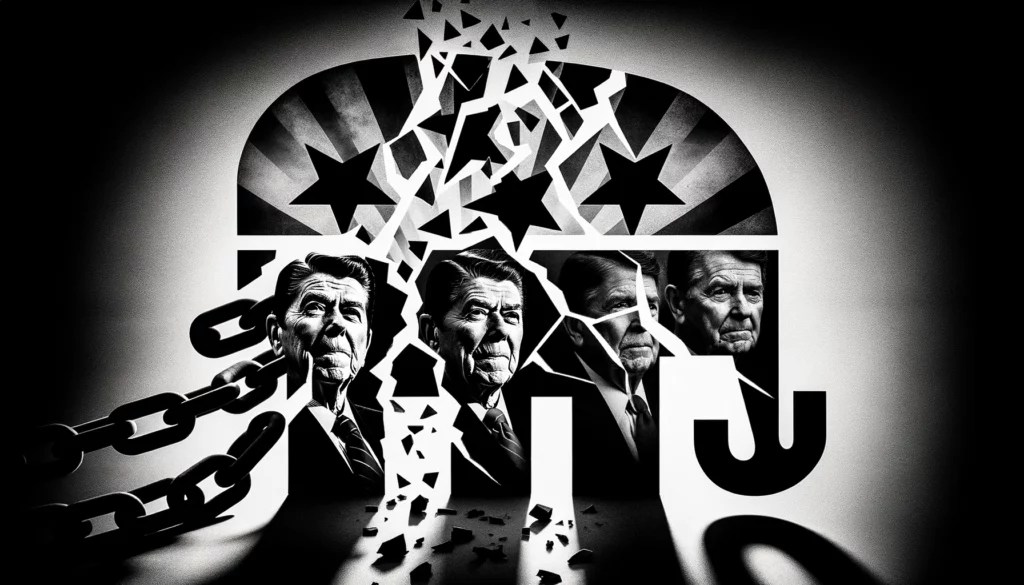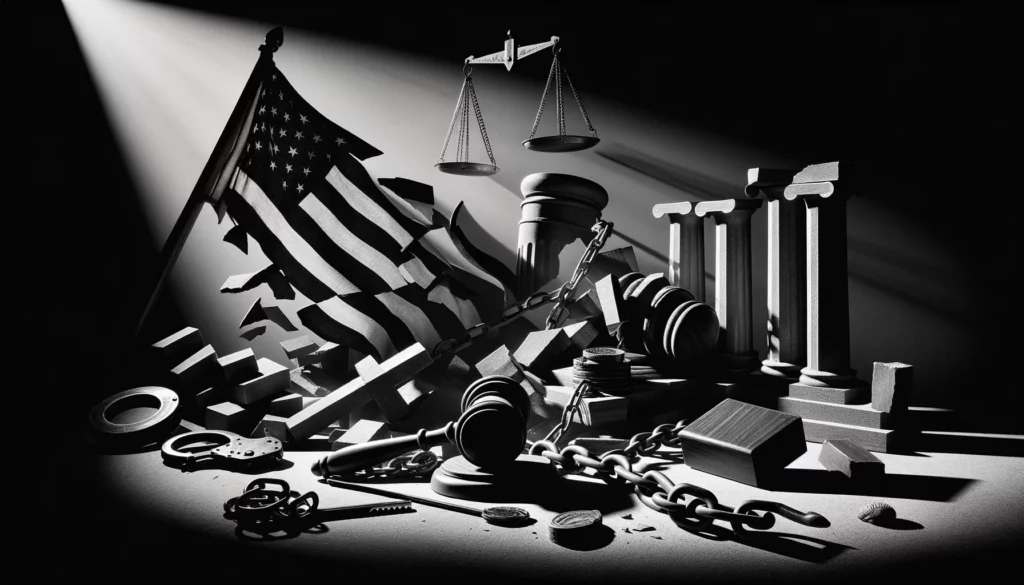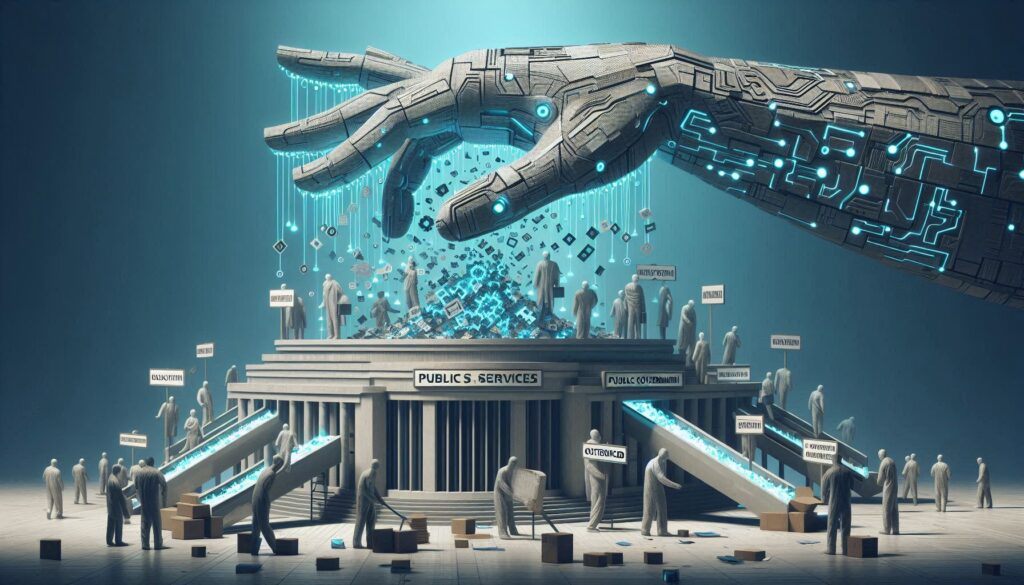Introduction
The Republican Party, once the bastion of conservative governance and free-market advocacy, has undergone a profound transformation. From the era of Ronald Reagan, characterized by a staunch anti-communist stance, promotion of small government, and a belief in the sanctity of American democratic values, to the present, the party’s trajectory has been marked by significant ideological shifts. This article explores the extent to which modern Republicans have diverged from the Reagan-era principles, examining their apparent embrace of authoritarian figures, a departure from traditional governance in pursuit of power, and policies that, paradoxically, undermine the very constituents they claim to represent.

The Reagan Legacy: A Benchmark for Comparison
Ronald Reagan’s presidency (1981-1989) is often cited as a defining period for the Republican Party. Reagan championed a conservative agenda that emphasized tax cuts, deregulation, and a strong anti-Soviet foreign policy. His governance was marked by an optimistic vision of America’s role in the world, advocating for freedom and against the spread of communism. Reagan’s ability to communicate his beliefs, earning him the moniker “The Great Communicator,” coupled with his policies, left a lasting imprint on the Republican Party, setting a benchmark against which future shifts would be measured.
Shifts in the Republican Paradigm
Over the past few decades, the Republican Party has seen a marked shift from the principles that defined the Reagan era. This transformation has been characterized by a more confrontational political stance, a skepticism towards multilateralism, and an increasing tolerance for, if not outright support of, authoritarian figures globally. A key figure in this ideological shift has been Russia’s Vladimir Putin, whom some party leaders have praised, despite his authoritarian rule and adversarial position against democratic nations. This admiration for Putin and other strongmen signals a departure from the party’s historical stance on democracy and global leadership.
The reasons for this shift are multifaceted, including changing demographics, economic anxieties, and a reaction against globalization. The post-Cold War era, with its complex international challenges, has also prompted a reevaluation of foreign policy priorities. However, the most profound changes have occurred domestically, with a growing polarization and the rise of a more populist, nationalist faction within the party that eschews traditional conservative values for more radical, power-centric governance strategies.
Allegations of Fascism and Authoritarianism

The Republican Party’s embrace of populist rhetoric and leaders who espouse authoritarian tendencies has led to allegations of fascism. Critics point to the undermining of democratic institutions, the vilification of the press, and the deployment of law enforcement and judicial powers against perceived political enemies as hallmarks of this shift. Additionally, there has been a notable effort to install party loyalists in key judicial positions, raising concerns about the impartiality of the judiciary and its role as a check on executive power.
These actions have drawn parallels with the early stages of fascist regimes, where the consolidation of power often begins with the co-optation or undermining of judicial independence. The rhetoric used by some party leaders, which often includes demonizing opponents, spreading misinformation, and glorifying “strong” leadership, further exacerbates these concerns.
Economic Policies and the Middle Class
Economically, the modern Republican Party’s policies have increasingly favored the wealthy and corporations, despite a populist narrative that criticizes the “elite” for the nation’s woes. Tax cuts and deregulation have disproportionately benefited the top percentile, while wages for the middle class have stagnated. This contradiction between rhetoric and policy highlights a deeper issue within the party: a departure from a governance model that seeks to uplift the average American towards one that amplifies existing inequalities.
The narrative targeting “elites” serves to deflect attention from the party’s own alignment with the interests of the wealthy and powerful. By casting themselves as champions of the “common man” against a supposedly corrupt and out-of-touch elite, party leaders obscure the reality that their policies often increase the economic divide.
Historical Lessons: The Path to Authoritarianism
History offers stark lessons about the paths nations can take towards authoritarianism, often starting with subtle judicial and institutional takeovers. Fascist regimes of the 20th century typically began their ascent to power through the manipulation of legal and political institutions, gradually eroding democratic norms and checks on power. The current trends within the Republican Party, seen through the lens of these historical examples, raise alarms about the potential for a similar erosion of democratic principles in the United States.
Judicial takeovers, the vilification of opposition, and the consolidation of power within a single party or leader are early warning signs of authoritarianism. These actions undermine the democratic process, reduce accountability, and concentrate power in ways that can be difficult to reverse.
Conclusion and Forward-Looking Perspectives
The transformation of the Republican Party from the Reagan era to its current state reflects broader trends in American and global politics towards polarization and populism. While the party’s shift has alarmed many observers, it also prompts a critical examination of the health of American democracy and the resilience of its institutions.
Looking forward, it is essential for the political discourse to move beyond partisan divisions and address the underlying issues that fuel dissatisfaction and division. A bipartisan commitment to democratic principles, the rule of law, and the welfare of all Americans is crucial to preventing the descent into the authoritarian practices observed in other nations’ histories.
As the United States faces these challenges, the lessons of the past serve as a reminder of the value of democracy and the need for vigilance in preserving it. The Republican Party, as a key player in American politics, has a pivotal role in this process, necessitating a reflection on its current trajectory and a reconsideration of the values it seeks to promote.




